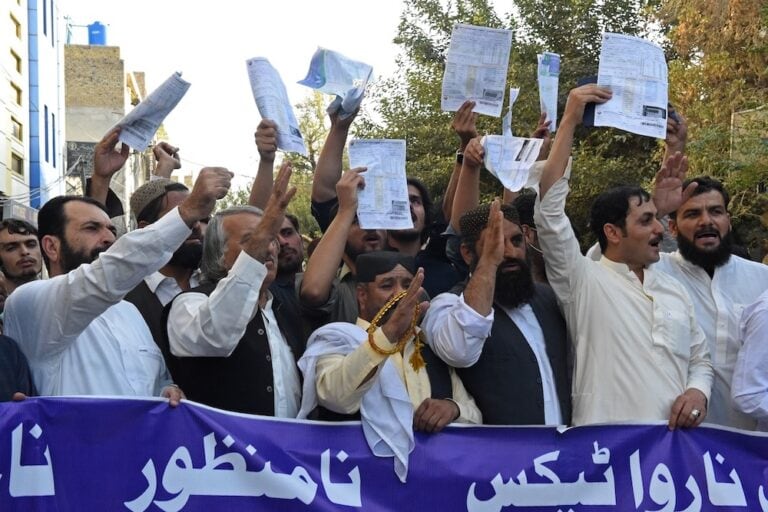Digicom, the largest provider of electronic services in Pakistan, has asked its clients to sign agreements that impose a number of restrictions of the use of the Internet. According to Digicom, these restrictions are part of the licence terms that were imposed by the Pakistan Telecommunication Authority (PTA), the licensing authority for electronic services. Under […]
Digicom, the largest provider of electronic services in Pakistan,
has asked its clients to sign agreements that impose a number of
restrictions of the use of the Internet. According to Digicom,
these restrictions are part of the licence terms that were
imposed by the Pakistan Telecommunication Authority (PTA), the
licensing authority for electronic services.
Under the terms of the agreement, users are prohibited from using
any sort of data encryption and have to agree that their
electronic communications may be monitored by government
agencies. Transmission or reception of obscene or objectionable
material is also prohibited and may lead not only to immediate
disconnection of service but also to prosecution by authorities.
The agreement terms also prohibit the use of the Internet for
voice transmission. Violation of this clause can lead to
prosecution according to the Telephone and Telegraph Act of 1885
and termination of service without any notice. The purpose of
this clause is only to protect the commercial interests of the
government-owned Pakistan Telecommunication Corporation (PTC),
which enjoys a monopoly over telephone and telex communications.
Users of the electronic services will also have to provide
Digicom with copies of the National Identity Card (NIC) while
foreign nationals will have to submit copies of their passport.
Those that do not sign the agreement will face disconnection of
their services. Other electronic service providers are also
expected to require similar agreements.
Recently, the Pakistan Telecommunications Authority (PTA) invited
proposals to establish and operate electronic information
services in Pakistan under the second phase of licensing of
electronic services. However, similar restrictions will continue
in the second phase also and licences will be issued under the
terms of the highly restrictive Telephone and Telegraph Act.
As for the prospective service providers, they will have to agree
to use only the authorised means of communications provided by
PTC for all intercity, intracity and international data
communication. According to the terms of issuance of licences,
service providers will also be responsible for ensuring that the
programs and information provided through electronic services do
not “come into direct clash with accepted standards of morality
and social values in Pakistan.”


